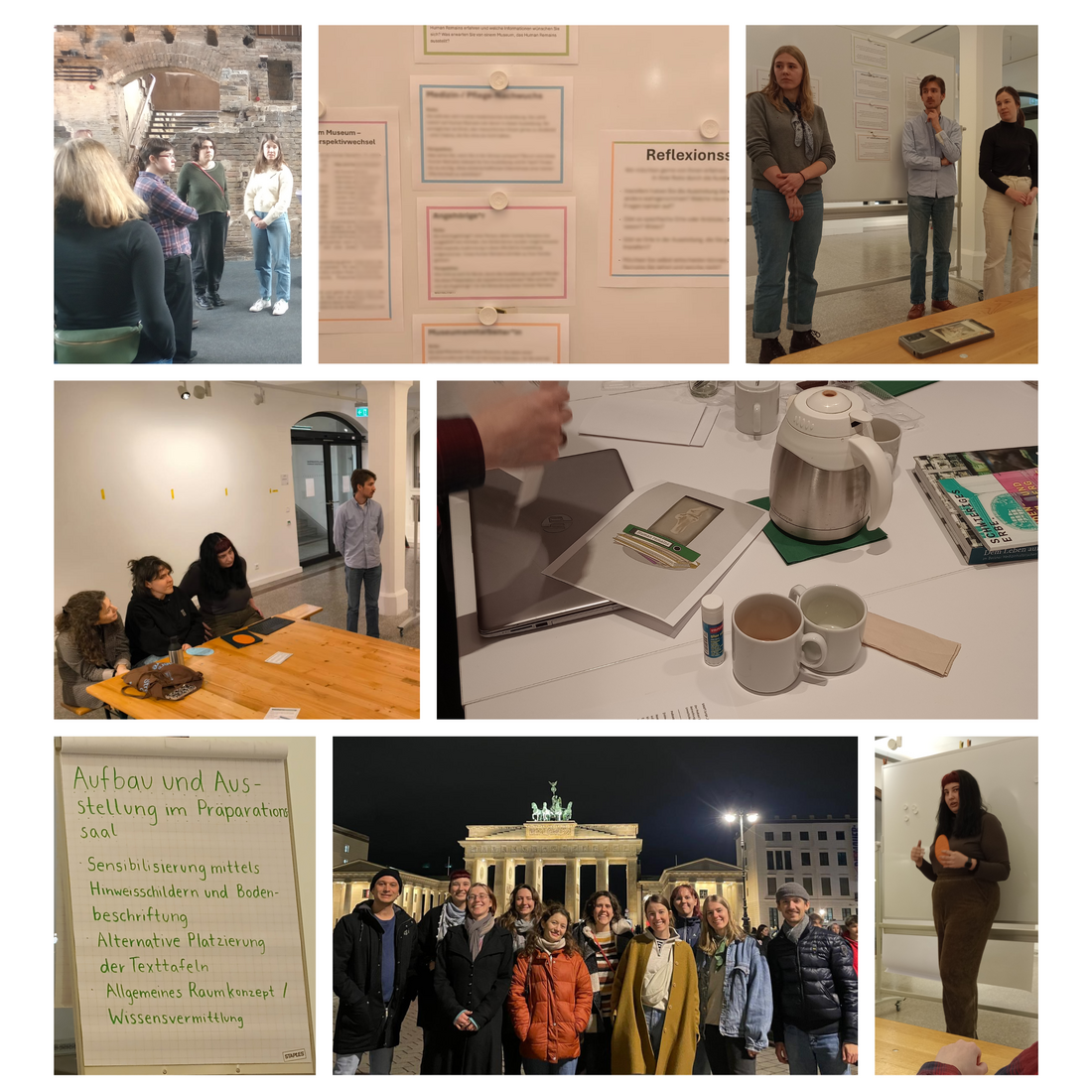Exhibitability of 'sensitive objects'
A Tübingen student project at the Berlin Museum of Medical History
In recent years, the handling of 'sensitive objects' has been the subject of increasing debate in German museums and collections. The debate is particularly concerned with the colonial and Nazi contexts of injustice, but also goes beyond them. The complexity of the discussions in turn feeds back into the curatorial work. How can these debates be reflected in exhibition techniques and curatorial choices? How can views, representations and discussions about the exhibitability of 'sensitive objects' be changed through curatorial decisions?
In the winter semester 2024/2025, the Museum of the University of Tübingen MUT, together with the Berlin Museum of Medical History, offered the field-trip seminar “Theories and practical examples of exhibitability of ‘sensitive objects’, using the example of human remains”.
In two block dates, the students explored the backgrounds, theories and academic discussions regarding the handling of human remains. This was elaborated on in presentations about terms and examples from museological practice. This was followed by a field trip to Berlin from January 25th to 29th to put the theory into practice. The students visited the Humboldt Forums's South America Exhibition, where Romina Tello Astudille de Beer introduced them to the mallqui (mummy bundle) of the Ethnological Museum as well as the discussion surrounding its display, and the Museum für Naturkunde Berlin with an exhibition on taxidermy, but also human remains from archaeological contexts. Focus of the excursion was the Berlin Museum of Medical History, where the director Prof. Monika Ankele took the students on a tour.
In working groups the students developed their own ideas and concrete concepts on how the exhibition can display the discussion's complexity. Critical reflection and creative implementations were required. Thus, three groups with different, but complementing focal points emerged.
Results of the field-trip seminar
The results were not only presented to the staff in the Berlin Museum of Medical History itself. On January 31st, they were also discussed at the ‘Medical Museological Salon’, in front of a recognised professional audience. The student project and the resulting concepts were very well received and eagerly debated. On April 9th, 2025, the MUT and the students participated in the International Day of Provenance Research by giving insights into their project ideas.



